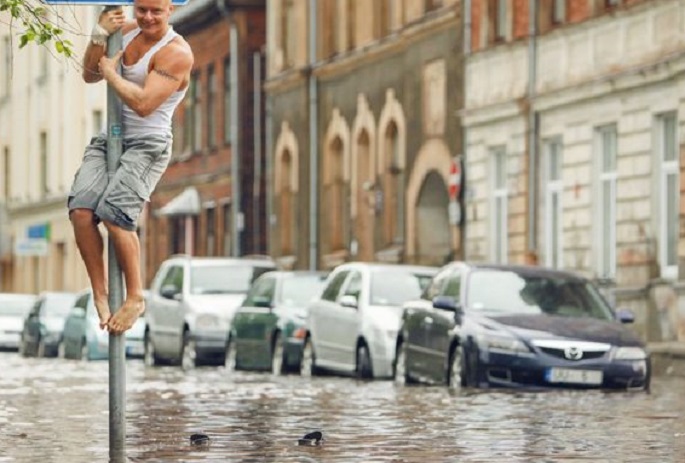Floods cause inflows of toxins into Baltic Sea
Published : 20 Feb 2019, 03:13
Floods increase the risk of untreated wastewater being flushed from urban drainage systems into the nature, said a study.
This is harmful to people and the environment due to the excessive amount of nutrients, hazardous substances and pathogenic microbes of the wastewater, according to a press release issued by Natural Resources Institute Finland (Luke) on Tuesday.
Effective management of urban stormwaters is one of the largest environmental problems faced by cities around the Baltic Sea.
Climate change brings along intense rainfalls and storms in the Baltic Sea region. Urban drainage systems are not capable to handle this, and therefore floods are becoming more common in the densely populated areas.
Urban areas can be prepared for floods by improved planning and self-adaptive drainage operations.
The NOAH project has brought together nine towns and water utilities, seven academic and research institutions and two umbrella organizations from six countries around the Baltic Sea to join their forces.
Location of the partners fosters capacity building from North to South and West to East. The challenges to be solved vary from area to area – and similarly does the expertise among project partners, which is a notable advantage for NOAH. For example, the city of Pori in Finland will share their profound experience of monitoring river conditions and preparing for floods. Water companies, for their part, bring to the project hands-on expertise on operating urban drainage.
The Finnish partners are in key roles in the project. Satakunta University of Applied Sciences is responsible for managing project communication. The City of Pori provides knowledge of river flood control and on the other hand gains new knowledge on storm water control.
“Natural Resources Institute Finland (Luke) works with water quality analysis to demonstrate the impacts of actions performed on pilot sites,” said researcher Virpi Vorne from Luke.
Implementation of the concept can cut up to half of the inflow of pollutants from urban areas into the Baltic Sea. As a result of NOAH, a catchment-based stormwater planning solution is tested and adapted to the urban planning procedure of the partner cities.
The NOAH concept will be easily scalable to any urban area around the Baltic Sea. The activities will be anchored into daily practices of towns and water utilities, for mitigating impacts of climate change, and leading to healthier and cleaner Baltic Sea.


